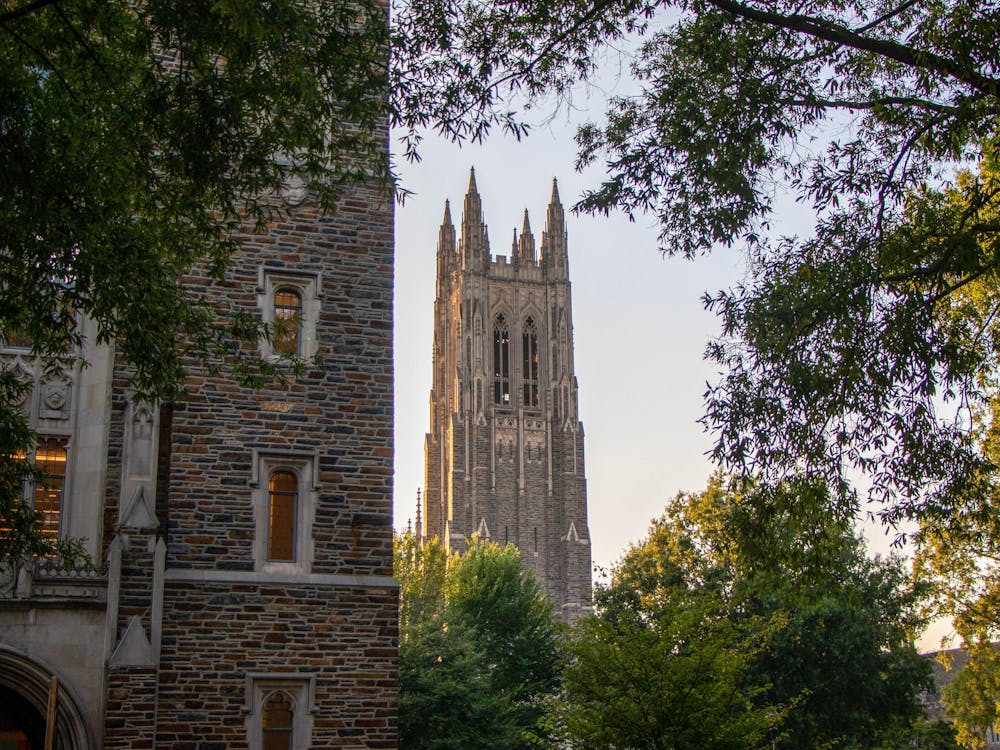Amid a reevaluation of diversity initiatives and affirmative action policies across the country, North Carolina has now been pulled into the conversation following a significant funding cut at one of its most widely recognized universities.
At the University of North Carolina at Chapel Hill, $2.3 million of state funding within the university’s budget will be diverted from diversity, equity and inclusion spending to public safety in the 2024–25 fiscal year. The UNC Board of Trustees voted May 13 in support of the change, which will take effect July 1.
Budget Committee Vice Chair Marty Kotis highlighted a need for more safety and law enforcement while students continue to engage in demonstrations over the Israel-Hamas war.
However, according to Budget Committee Chair David Boliek Jr., the rise in protests is not the primary reason for the funding cut. He noted that the board has been discussing the possibility of reallocating DEI funding for almost a year and that the decision was made in the broader context of events such as the Supreme Court’s overturning of race-based affirmative action June 2023 and the fatal shooting on UNC’s campus in August.
It is possible that this reallocation of funds could result in the closure of UNC’s Office of Diversity and Inclusion, which currently employs 12 staff members.
Junior Akshay Gokul, Duke Student Government DEI chair, is not “surprised at all” by UNC’s funding cut. He drew parallels to a paper he wrote analyzing Florida Gov. Ron DeSantis’s targeting of DEI in higher education for a class in the spring 2023 semester.
“It’s almost like a carbon copy of what we're seeing now,” Gokul said. “People in leadership are not caring about this as much as they should.”
Junior Kyle MacLellan agreed, similarly noting that although she is “not surprised that it happened, it doesn’t mean [she is] not disappointed.”
Gokul noted that some people seem to misunderstand the impact of DEI at schools, thinking of it as “this weird practice that makes people feel inferior.” Through his DSG role, he said he has been able to see such work firsthand, which he described as fundamentally important.
“When I talk about radical empathy and radical care, [DEI staff] are the people on campus that are actually practicing that, and I think people don't actually understand that,” Gokul said. “Nothing is political about caring for students.”
At an institutional level, however, Gokul believes that Duke sometimes uses “empty gestures” to “save their back” when it comes to DEI, but that it’s hard to predict if the University would follow suit after UNC’s decision.
MacLellan highlighted the difference between a state-funded school like UNC and Duke — a private institution that can make more of its own decisions.
If a similar funding cut were to happen at Duke, it would follow the discontinuation of the Reginaldo Howard Memorial Scholarship Program in the wake of the Supreme Court’s affirmative action ruling. The scholarship provided full tuition, room and board for up to five Black undergraduates per year.
“As a private university, [Duke has] an opportunity to make [its] own decisions, and [continuing] the Reggie Howard Scholarship and maintaining intentional standings of DEI allyship could have been done,” MacLellan said. “Removing that scholarship says something.”
MacLellan, a member of a National Pan-Hellenic Council chapter at Duke, expressed concerns that “Black organizations are in danger everywhere, [including] at Duke.
“Anything that is intentionally set aside for students of color is actively under attack,” she said.
MacLellan cited the Black Student Alliance Invitational Weekend as an example, which she said presents a challenge for student organizers every year. MacLellan added that the event, which is held for around 100 Black prospective students, requires detailed planning and “jump[ing] through” hoops in order to avoid accusations of being “exclusive.”
She also noted that NPHC organizations face similar challenges when hosting their other events throughout the year.
“It’s always a battle on a [predominantly white institution’s] campus to establish spaces dedicated towards people of color,” MacLellan said.
For junior Gabrielle Perry, a college experience without DEI funding is hard to imagine.
Get The Chronicle straight to your inbox
Sign up for our weekly newsletter. Cancel at any time.
“There is reason to be concerned about lower rates of minority students in the classrooms … but I also can’t tell [what will happen] with time because Duke has said that they’re going to make sure that impact continues to be a priority for them,” she said.
Perry contended that the question that universities considering DEI cuts must ask themselves is: “Do we have enough support systems left without the DEI programs … where students of color on campus still feel supported?”
While students express uncertainty and concern over the future of DEI, Kimberly Hewitt, vice president for institutional equity and chief diversity officer, shared that Duke intends to continue promoting and practicing DEI.
“Duke remains committed to its values, which means cultivating a diverse, equitable and inclusive community to achieve excellence in teaching, research, scholarship, learning, patient care and work,” she wrote in a June 6 email to The Chronicle. “We will continue our commitment to racial and social equity while complying with any relevant changes in the law.”

Madera Longstreet-Lipson is a Trinity sophomore and an associate news editor for the news department.

